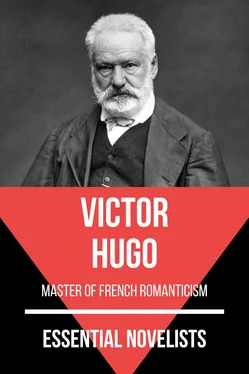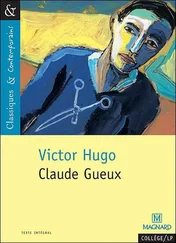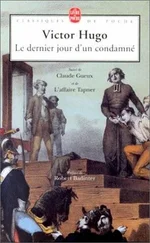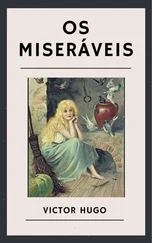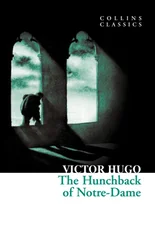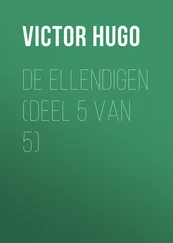When Javert had taken his departure, M. Madeleine turned to her and said to her in a deliberate voice, like a serious man who does not wish to weep and who finds some difficulty in speaking:—
“I have heard you. I knew nothing about what you have mentioned. I believe that it is true, and I feel that it is true. I was even ignorant of the fact that you had left my shop. Why did you not apply to me? But here; I will pay your debts, I will send for your child, or you shall go to her. You shall live here, in Paris, or where you please. I undertake the care of your child and yourself. You shall not work any longer if you do not like. I will give all the money you require. You shall be honest and happy once more. And listen! I declare to you that if all is as you say,—and I do not doubt it,—you have never ceased to be virtuous and holy in the sight of God. Oh! poor woman.”
This was more than Fantine could bear. To have Cosette! To leave this life of infamy. To live free, rich, happy, respectable with Cosette; to see all these realities of paradise blossom of a sudden in the midst of her misery. She stared stupidly at this man who was talking to her, and could only give vent to two or three sobs, “Oh! Oh! Oh!”
Her limbs gave way beneath her, she knelt in front of M. Madeleine, and before he could prevent her he felt her grasp his hand and press her lips to it.
Then she fainted.
––––––––
Chapter I
The Beginning Of Repose
––––––––
M. MADELEINE HAD FANTINE removed to that infirmary which he had established in his own house. He confided her to the sisters, who put her to bed. A burning fever had come on. She passed a part of the night in delirium and raving. At length, however, she fell asleep.
On the morrow, towards midday, Fantine awoke. She heard some one breathing close to her bed; she drew aside the curtain and saw M. Madeleine standing there and looking at something over her head. His gaze was full of pity, anguish, and supplication. She followed its direction, and saw that it was fixed on a crucifix which was nailed to the wall.
Thenceforth, M. Madeleine was transfigured in Fantine’s eyes. He seemed to her to be clothed in light. He was absorbed in a sort of prayer. She gazed at him for a long time without daring to interrupt him. At last she said timidly:—
“What are you doing?”
M. Madeleine had been there for an hour. He had been waiting for Fantine to awake. He took her hand, felt of her pulse, and replied:—
“How do you feel?”
“Well, I have slept,” she replied; “I think that I am better. It is nothing.”
He answered, responding to the first question which she had put to him as though he had just heard it:—
“I was praying to the martyr there on high.”
And he added in his own mind, “For the martyr here below.”
M. Madeleine had passed the night and the morning in making inquiries. He knew all now. He knew Fantine’s history in all its heart-rending details. He went on:—
“You have suffered much, poor mother. Oh! do not complain; you now have the dowry of the elect. It is thus that men are transformed into angels. It is not their fault they do not know how to go to work otherwise. You see this hell from which you have just emerged is the first form of heaven. It was necessary to begin there.”
He sighed deeply. But she smiled on him with that sublime smile in which two teeth were lacking.
That same night, Javert wrote a letter. The next morning be posted it himself at the office of M. sur M. It was addressed to Paris, and the superscription ran: To Monsieur Chabouillet, Secretary of Monsieur le Préfet of Police. As the affair in the station-house had been bruited about, the post-mistress and some other persons who saw the letter before it was sent off, and who recognized Javert’s handwriting on the cover, thought that he was sending in his resignation.
M. Madeleine made haste to write to the Thénardiers. Fantine owed them one hundred and twenty francs. He sent them three hundred francs, telling them to pay themselves from that sum, and to fetch the child instantly to M. sur M., where her sick mother required her presence.
This dazzled Thénardier. “The devil!” said the man to his wife; “don’t let’s allow the child to go. This lark is going to turn into a milch cow. I see through it. Some ninny has taken a fancy to the mother.”
He replied with a very well drawn-up bill for five hundred and some odd francs. In this memorandum two indisputable items figured up over three hundred francs,—one for the doctor, the other for the apothecary who had attended and physicked Éponine and Azelma through two long illnesses. Cosette, as we have already said, had not been ill. It was only a question of a trifling substitution of names. At the foot of the memorandum Thénardier wrote, Received on account, three hundred francs.
M. Madeleine immediately sent three hundred francs more, and wrote, “Make haste to bring Cosette.”
“Christi!” said Thénardier, “let’s not give up the child.”
In the meantime, Fantine did not recover. She still remained in the infirmary.
The sisters had at first only received and nursed “that woman” with repugnance. Those who have seen the bas-reliefs of Rheims will recall the inflation of the lower lip of the wise virgins as they survey the foolish virgins. The ancient scorn of the vestals for the ambubajæ is one of the most profound instincts of feminine dignity; the sisters felt it with the double force contributed by religion. But in a few days Fantine disarmed them. She said all kinds of humble and gentle things, and the mother in her provoked tenderness. One day the sisters heard her say amid her fever: “I have been a sinner; but when I have my child beside me, it will be a sign that God has pardoned me. While I was leading a bad life, I should not have liked to have my Cosette with me; I could not have borne her sad, astonished eyes. It was for her sake that I did evil, and that is why God pardons me. I shall feel the benediction of the good God when Cosette is here. I shall gaze at her; it will do me good to see that innocent creature. She knows nothing at all. She is an angel, you see, my sisters. At that age the wings have not fallen off.”
M. Madeleine went to see her twice a day, and each time she asked him:—
“Shall I see my Cosette soon?”
He answered:—
“To-morrow, perhaps. She may arrive at any moment. I am expecting her.”
And the mother’s pale face grew radiant.
“Oh!” she said, “how happy I am going to be!”
We have just said that she did not recover her health. On the contrary, her condition seemed to become more grave from week to week. That handful of snow applied to her bare skin between her shoulder-blades had brought about a sudden suppression of perspiration, as a consequence of which the malady which had been smouldering within her for many years was violently developed at last. At that time people were beginning to follow the fine Laënnec’s fine suggestions in the study and treatment of chest maladies. The doctor sounded Fantine’s chest and shook his head.
M. Madeleine said to the doctor:—
“Well?”
“Has she not a child which she desires to see?” said the doctor.
“Yes.”
“Well! Make haste and get it here!”
M. Madeleine shuddered.
Fantine inquired:—
“What did the doctor say?”
M. Madeleine forced himself to smile.
“He said that your child was to be brought speedily. That that would restore your health.”
“Oh!” she rejoined, “he is right! But what do those Thénardiers mean by keeping my Cosette from me! Oh! she is coming. At last I behold happiness close beside me!”
Читать дальше
